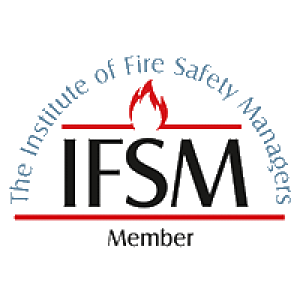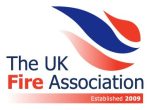Right, let’s cut to the chase. You’re running a small business, you’ve got a million things on your plate, and now you’re wondering whether you actually need fire extinguishers.
Maybe you’re thinking, “I’m just a small shop – surely I don’t need all that hassle?”
Well, here’s the thing: Yes, you absolutely do need them. And it’s not just about ticking a box – it’s the law, and it could literally save your business (and lives) one day.
The Legal Bit (Don’t Worry, We’ll Keep It Simple)
In the UK, we’ve got something called The Regulatory Reform (Fire Safety) Order 2005. Sounds fancy, right? Basically, it says that if you’ve got any kind of business premises – whether it’s a tiny office above a shop or a massive warehouse – you need to have proper fire safety measures in place.
And that includes fire extinguishers.
The rule is pretty straightforward: if there’s any risk of fire on your premises (and let’s face it, there always is), you need appropriate fire-fighting equipment. Got electrical equipment? Computers? A kettle? Paper? Congratulations, you’ve got fire risks!
“But I’m Just a Small Business!”
I hear you. You might think this is just red tape for the big guys, but honestly, it applies to everyone. Whether you’re running a one-person consultancy from a rented office or you’ve got a team of 20, the law doesn’t care about your size – it cares about keeping people safe.
What Do You Actually Need to Do?
Here’s your to-do list (and it’s not as scary as you think):
1. Do a Fire Risk Assessment Now, before you panic – while this might sound straightforward, most business owners don’t have the knowledge, experience, or frankly the time to do this properly. You’re basically looking around your premises and thinking, “Where could a fire start? How would people get out? What fire-fighting equipment do I need?”
But here’s the thing – there’s a lot more to it than meets the eye. What looks like a simple office to you might have hidden fire risks that only a trained professional would spot. That’s why many smart business owners get a professional to handle this bit.
We’re always on hand to do these risk assessments for clients – with over 20 years of electrical and fire safety experience, it’s a knowledge resource worth using rather than trying to figure it out yourself.
If you’ve got 5 or more employees, you need to write this down. If it’s just you, you can keep it in your head (though writing it down is still a good idea).
2. Get the Right Fire Extinguishers This is where it gets a bit technical, but stick with me:
- For electrical equipment (computers, printers, that temperamental photocopier): You need CO2 extinguishers. If you’ve got heavy-duty electrical kit, you might need bigger ones.
- For general stuff (paper, wood, fabric, rubber): You need what’s called “Class A” extinguishers. These are your bread-and-butter fire extinguishers.
- If you’ve got a kitchen: You’ll need wet chemical extinguishers for cooking oil fires. Trust me, water and hot oil don’t mix well.
3. Make Sure People Can Actually Find Them There’s no point having fire extinguishers if they’re hidden behind a filing cabinet or buried under a pile of boxes. They need to be:
- Easy to spot
- Easy to reach
- Clearly marked with signs
4. Keep Them Maintained Fire extinguishers aren’t like that gym membership you forget about – they need regular check-ups to make sure they’ll actually work when you need them.
How Many Do You Need?
Good question! It depends on your setup, but here’s a rough guide:
- You should be able to reach a suitable fire extinguisher within 30 metres from anywhere in your building
- Generally, you want at least two Class A extinguishers on each floor
- The bigger your space, the more you’ll need
- Higher-risk areas might need extra coverage
Who’s Responsible for All This?
That would be you, I’m afraid. As the business owner, you’re what’s called the “responsible person” under the law. You can delegate the day-to-day stuff to someone else, but ultimately, the buck stops with you.
What Happens If You Don’t Bother?
Look, I don’t want to scare you, but the penalties are pretty serious:
- Unlimited fines (yes, unlimited)
- Up to two years in prison for the responsible person
- Your business could be shut down
- Your insurance might not pay out if something goes wrong
But more importantly, if there’s a fire and someone gets hurt because you didn’t have proper fire safety measures… well, that’s not something you want on your conscience.
Getting Help
If all this sounds overwhelming, don’t worry – you don’t have to figure it out alone. You can:
- Do it yourself for straightforward premises (there are loads of online guides)
- Get professional help – ESI can provide a comprehensive fire extinguisher risk assessment if you’re in doubt about what you need, and they can supply any additional equipment required to keep you compliant
- Ask your local fire service – they’re often happy to give advice
The Bottom Line
Yes, fire extinguishers are legally required. But more than that, they’re just good business sense. A small fire that gets put out quickly with an extinguisher is an inconvenience. A fire that spreads because you didn’t have the right equipment? That’s a disaster.
The cost of getting proper fire safety sorted is tiny compared to the potential consequences of not bothering. We’re talking a few hundred pounds for most small businesses versus potentially losing everything.
Your Next Steps
- Look around your premises – what fire risks do you have?
- Check what fire extinguishers you’ve already got (if any)
- Get professional advice if you’re not sure what you need
- Buy and install the right equipment
- Set up a maintenance schedule
- Brief your team on where everything is and how to use it
One Last Thing
Don’t leave this on your “I’ll get to it eventually” list. Fire doesn’t wait for a convenient time, and neither should your fire safety preparations. Sort it out now, sleep better at night, and get back to focusing on what you do best – running your business.
Remember, this is general guidance, and every business is different. If you’re not sure about anything, get professional advice. It’s worth the investment for peace of mind alone.
Need more specific advice? Your local fire authority or a qualified fire safety consultant can help you work out exactly what your business needs.










